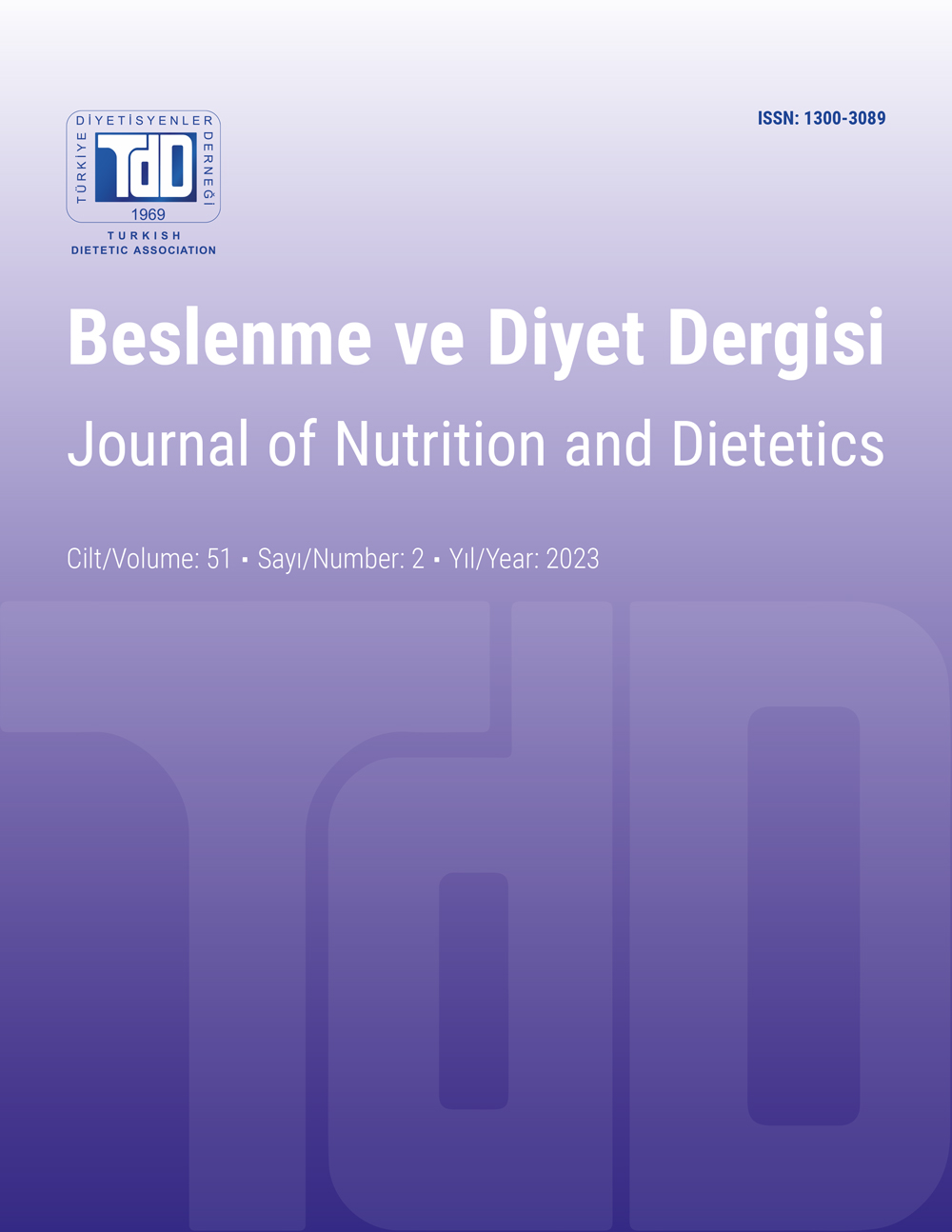Evaluation of Validity and Reliability of the Turkish Form of e-Healthy Diet Literacy Scale
DOI:
https://doi.org/10.33076/2023.BDD.1728Keywords:
Nutrition literacy, electronic healthy nutrition literacy, validity, reliability, scale adaptationAbstract
Aim: It was aimed to adapt the “e-Healthy Nutrition Literacy (e-HDL)” scale to Turkish by evaluating its Turkish version’s validity and reliability.
Subjects and Method: The study was conducted with 158 individuals (60.8% female, 39.2% male) with a mean age of 41.32±12.52 years, who followed a social media page in which the content related to healthy nutrition was shared between January and March 2022. The adaptation of the scale to Turkish was carried out by using the translation-back translation method, and the determination of the content validity was carried out by evaluating the relevance of each item in the scale online by 10 lecturers who are experts in the field of Nutrition and Dietetics. Explanatory factor analysis, discriminant validity, internal consistency/reliability analysis and test-retest reliability analysis were used to determine the validity and reliability of the scale.
Results: The content validity of the e-HDL scale was calculated with the item content validity index (M-IGI) and the “perfect fit” result was obtained for each item. The Kaiser-Meyer-Olkin value of the scale was determined as 0.69, and it was determined that there was a sufficient level of correlation between the items for factor analysis according to the Bartlett Test of Sphericity (χ2=1090.5; p=0.000). It was found that the e-HDL scale, which consists of 15 items, was gathered under five factors (dimensions) as in the original. The factor load of the items in all dimensions of the scale was over 0.40 and the percentage of total variance explanation was 73.5%. Statistically significant positive correlations were found between the total score of the e-HDL scale and the scores of all sub-dimensions. In addition to this, the Cronbach Alpha Internal Consistency Coefficient of the scale was determined as 0.77. In order to determine the confirmatory construct validity of the scale, the “Structural Equation Model” was used, taking into account the 5 factors in the original study. The Chi-square (χ2) Fit Index of the scale was 4.25, the Adjusted Goodness of Fit Index (AGFI) was 0.91, Root Mean Square Error (RMR) 0.0043 and Root Mean Square Error of Approximation (RMSEA) was determined as 0.068. Finally, the correlation coefficient of the test and retest scores of the e-HDL scale was 0.98 (p=0.000).
Conclusion: As a result of this study, it was determined that the Turkish version of the e-HDL scale is a valid and reliable tool to measure the electronic healthy nutrition literacy levels of individuals.

